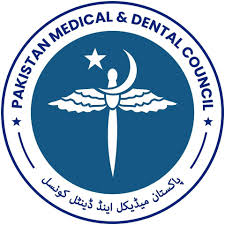Correlation of Emotional Intelligence with Academic Performance among Medical Undergraduates of Nishtar Medical University Multan
DOI:
https://doi.org/10.37018/JFJMU/7894Keywords:
Emotional intelligence, Academic performance, Medical undergraduatesAbstract
Background: Emotional intelligence (EI) is associated with the success of healthcare professionals. Mental health, physical health, academic performance, and stress management are all linked to high EI. The academic achievement relies on one's social skills and emotional stability. This study aimed to determine the correlation between emotional intelligence scores and academic performance in medical undergraduates.
Subjects and methods: A cross-sectional study was conducted among second to final-year MBBS students at Nishtar Medical University (NMU). A total of 302 medical students were divided into two groups including 145 males and 157 females. Academic performance was assessed by using the last professional examination percentage and Emotional Intelligence (EI) was calculated by the Emotional Intelligence Scale [EIS] (comprising ten components: self-awareness, empathy, self-motivation, emotional stability, managing relations, integrity, self-development, commitment, value orientation, and altruistic behaviour). The data was analyzed using SPSS version 26. The overall EIS score was correlated with Academic performance using Spearman's correlation test.
Results: Among a total of 302 medical students, 145 (48%) were male and 157 (52%) were female with a mean (SD) of age 21.8 ± 1.396. A significant correlation was identified between overall EI and academic scores (r=0.204, p-value = 0.000) of medical students. The academic score of female students showed a significant correlation with all components of EIS (p-value = 0.000) while the academic score of male students was only correlated with one component of EIS [emotional stability] (p=0.049).
Conclusion: This study highlights the significant correlation among EI and academic performance, and suggests that EI needs to be integrated with academic practices and culture. Thus, more attention should be given to the development of EI in medical students to improve their academic performance, clinical skills, emotional stability, and stress management.
Downloads
Published
How to Cite
Issue
Section
License
The Journal of Fatima Jinnah Medical University follows the Attribution Creative Commons-Non commercial (CC BY-NC) license which allows the users to copy and redistribute the material in any medium or format, remix, transform and build upon the material. The users must give credit to the source and indicate, provide a link to the license, and indicate if changes were made. However, the CC By-NC license restricts the use of material for commercial purposes. For further details about the license please check the Creative Commons website. The editorial board of JFJMU strives hard for the authenticity and accuracy of the material published in the journal. However, findings and statements are views of the authors and do not necessarily represent views of the Editorial Board.

















